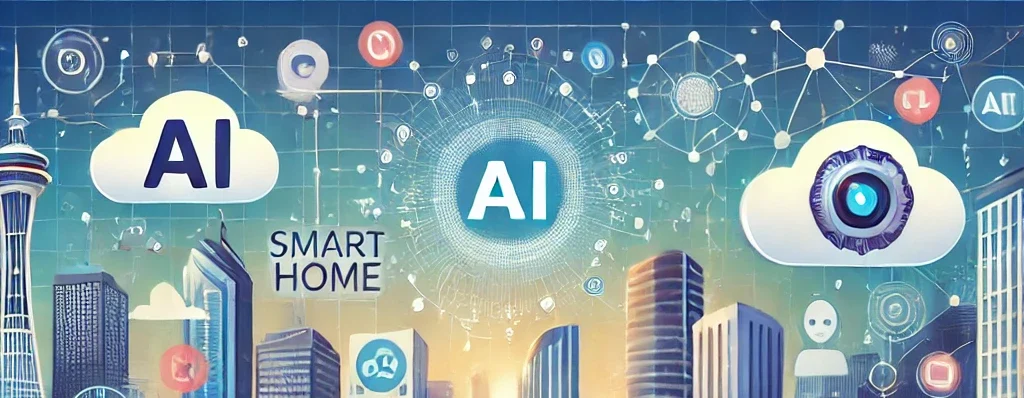Understanding AI’s Growing Presence
Artificial intelligence (AI) has seamlessly integrated into our daily routines, influencing how we work, communicate, shop, and even relax. Once a concept confined to science fiction, AI now powers technologies that simplify tasks, enhance experiences, and solve complex problems.
From virtual assistants to personalized recommendations, AI plays a crucial role in making life more efficient, convenient, and connected. Let’s explore how AI is shaping everyday life and what the future holds.
AI in Communication
AI has revolutionized the way we connect and interact with others, making communication faster and more accessible:
1. Virtual Assistants
AI-powered virtual assistants like Siri, Alexa, and Google Assistant help users manage schedules, send messages, and perform internet searches with simple voice commands.
2. Language Translation
Tools like Google Translate and AI-powered language apps enable seamless communication across different languages, breaking down language barriers in real time.
3. Chatbots
Customer service has been transformed by AI chatbots that provide instant, 24/7 support for common queries and tasks, enhancing user satisfaction.
AI in Shopping
AI-driven technologies are transforming the shopping experience, making it more personalized and efficient:
1. Personalized Recommendations
Platforms like Amazon and Netflix use AI algorithms to analyze user behavior and suggest products or content tailored to individual preferences.
2. Virtual Try-Ons
AI-powered tools allow users to virtually try on clothing, makeup, or eyewear, providing a realistic shopping experience without stepping into a store.
3. Dynamic Pricing
Retailers use AI to adjust pricing based on demand, inventory, and competitor pricing, ensuring competitive offers for consumers.
AI in Healthcare
AI is making healthcare more precise and accessible by assisting in diagnostics, treatment, and patient care:
1. Diagnostic Tools
AI-powered systems analyze medical data to detect diseases like cancer or heart conditions with high accuracy, often earlier than traditional methods.
2. Virtual Health Assistants
Apps and devices use AI to monitor symptoms, provide medication reminders, and suggest when to seek medical attention, improving patient management.
3. Telemedicine
AI enhances telemedicine platforms by enabling efficient scheduling, patient triage, and post-consultation follow-ups.
AI in Smart Homes
AI technologies have made homes smarter, more energy-efficient, and easier to manage:
1. Smart Home Devices
Devices like smart thermostats, lighting systems, and security cameras use AI to learn user preferences and optimize performance.
2. Home Security
AI-powered systems detect unusual activity, send alerts, and even differentiate between visitors and potential threats.
3. Energy Management
AI helps homeowners save energy by predicting usage patterns and adjusting settings automatically to reduce waste.
AI in Transportation
AI is redefining transportation with advancements in safety, efficiency, and accessibility:
1. Autonomous Vehicles
AI powers self-driving cars, which use sensors and algorithms to navigate roads, avoid obstacles, and improve traffic flow.
2. Ride-Hailing Services
Apps like Uber and Lyft use AI to match riders with drivers, predict arrival times, and optimize routes for efficiency.
3. Traffic Management
AI systems analyze traffic patterns to adjust signals and reduce congestion in real-time, improving urban mobility.
AI in Education
AI is enhancing learning experiences by personalizing education and streamlining administrative tasks:
1. Personalized Learning
AI-driven platforms adapt lessons and quizzes to individual student needs, promoting more effective learning.
2. Virtual Tutors
AI-powered tutors provide real-time assistance, answer questions, and offer feedback, making education more accessible.
3. Administrative Efficiency
AI automates tasks like grading, attendance tracking, and scheduling, allowing educators to focus more on teaching.
The Future of AI in Everyday Life
AI is poised to become even more integrated into daily life, with advancements in areas such as:
1. Augmented Reality (AR)
AI-powered AR applications will enhance virtual shopping, training, and entertainment experiences.
2. Personalized AI Companions
Future AI assistants may become more intuitive, understanding emotional cues and offering empathetic responses.
3. Sustainable Living
AI will play a key role in optimizing resource use, from smart farming to energy-efficient cities, promoting a greener planet.
Embracing AI for a Better Future
AI is transforming everyday life in remarkable ways, making tasks easier, services more accessible, and experiences more enriching. As technology continues to advance, the role of AI will only grow, shaping a future that’s smarter, more efficient, and deeply connected.
By embracing AI responsibly, we can harness its potential to improve quality of life for everyone.
